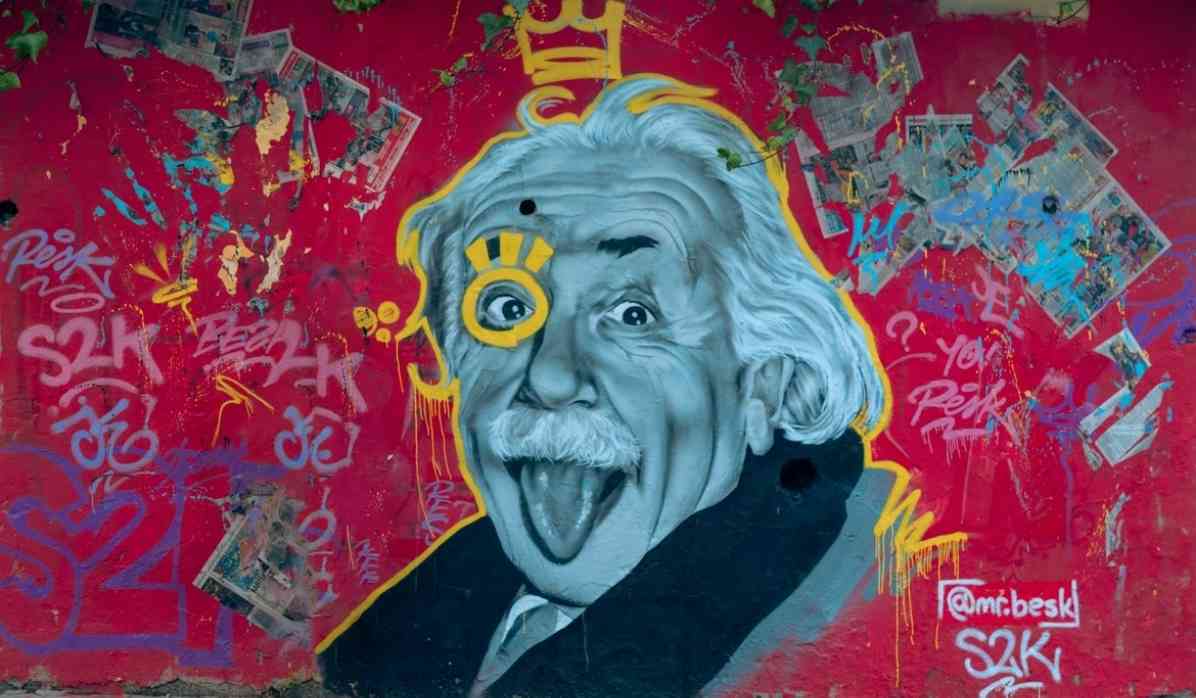Did Albert Einstein Meditate? Spirituality & Routine In His Work

Hey there, fellow Einstein enthusiasts! Are you curious about the mind of the genius who transformed our understanding of the universe?
Then you’ve come to the right place! In this article, we’ll delve into the fascinating world of Albert Einstein—his thoughts on meditation, his possible Myers-Briggs personality type, and even his daily routine.
After all, who wouldn’t want to learn from the man who unraveled the mysteries of space, time, and gravity?
So, grab your favorite warm beverage, sit back, and let’s embark on a journey to uncover the secrets of Einstein’s brilliance, with the hope that we might all glean a little inspiration for our own lives.
Did Albert Einstein Meditate? The Impact On His Work
The power of solitude
While there’s no concrete evidence that Einstein specifically practiced meditation in the traditional sense, he was known to appreciate solitude, a key aspect of most meditative practices.
He would often retreat into his own thoughts, allowing his mind to wander freely—a process some might liken to a form of meditation.
This “mental meandering” undoubtedly played a role in his ability to envision groundbreaking ideas like the theory of relativity.
Daydream believer
Einstein was a daydreamer, famously attributing his scientific discoveries to the power of his imagination.
Like meditation, daydreaming allows the mind to enter a more relaxed state, facilitating creativity and problem-solving.
It’s entirely possible that Einstein’s daydreaming, akin to a form of mindfulness, helped him access the mental clarity needed to develop his revolutionary theories.
The art of visualization
Einstein’s thought experiments are legendary in the world of science.
He often used visualization to explore complex concepts, like imagining himself riding a beam of light through space.
This mental exercise shares similarities with certain meditation techniques, such as guided imagery, which also encourages the visualization of scenarios or images to foster relaxation and insight.
Nature as a muse
Einstein was known to find solace and inspiration in nature.
He believed that spending time outdoors helped him connect with the fundamental truths of the universe.
This connection to nature is a significant aspect of many meditation practices, which emphasize the importance of grounding oneself in the natural world to cultivate mental clarity and focus.
Music as a meditative tool
A talented violinist, Einstein found solace in playing music. He once said that life without playing music would be inconceivable to him.
Music can serve as a form of meditation, providing a calming and centering effect that helps the mind tune out distractions and achieve a state of flow.
It’s not a stretch to imagine that Einstein’s musical pursuits may have supported his mental acuity and creativity.
Embracing the present moment
Einstein was known for his ability to focus intensely on a single problem or idea, sometimes losing track of time completely.
This ability to be fully present is a cornerstone of mindfulness meditation, which emphasizes the importance of concentrating on the here and now.
By immersing himself in the present moment, Einstein could delve deeply into his work and develop groundbreaking insights.
The power of simplicity
Lastly, Einstein was a proponent of simplicity in his life, valuing clarity and a minimalist approach to both his work and personal affairs.
This mirrors the essence of meditation, which often aims to declutter the mind and eliminate unnecessary distractions.
By embracing simplicity, Einstein was able to maintain a clear and focused mind, further contributing to his remarkable intellectual achievements.
Einstein’s Interest in Spirituality
Pantheism and Spinoza
Although Einstein didn’t adhere to a specific religious tradition, he was deeply influenced by Baruch Spinoza’s pantheistic worldview.
Pantheism holds that God and the universe are one and the same, and Einstein found solace in the idea that the laws of nature were the manifestation of a divine force.
This belief helped him maintain a deep respect for the mysteries of the universe and fueled his relentless pursuit of knowledge.
A Cosmic Religion
Einstein often spoke of a “cosmic religion” that transcended traditional faiths.
This cosmic religion emphasized the unity of all things, the importance of reason, and the beauty of the natural world.
For Einstein, spirituality was about seeking truth and understanding, and he believed that science and spirituality could coexist harmoniously.
A Sense of Wonder
Einstein’s scientific discoveries were driven by an insatiable curiosity and a profound sense of wonder.
He believed that the most beautiful and deepest experience one could have was the sensation of the mysterious, and this awe for the unknown was, for him, a form of spirituality.
The Role of Intuition
Einstein recognized the importance of intuition in his scientific work.
He believed that true creativity and originality in science were rooted in intuitive insights, which he saw as a bridge between the rational mind and the spiritual realm.
In this way, Einstein’s spirituality was an essential part of his creative process.
Compassion and Ethics
Einstein was deeply concerned with social justice and the well-being of humanity.
He believed that the ethical values derived from a spiritual perspective were crucial for fostering a better world.
For Einstein, empathy, compassion, and a strong sense of responsibility were key elements of his spiritual outlook.
The Limitations of Science
Despite his groundbreaking contributions to science, Einstein was aware of its limitations.
He acknowledged that science could only provide a limited understanding of the universe and that there were questions it couldn’t answer.
For these deeper questions, he turned to spirituality, philosophy, and the arts, understanding that a broader perspective was necessary to grasp the true nature of existence.
A Quest for Unity
Throughout his life, Einstein sought to unify the different forces and phenomena in the universe.
This quest for unity extended beyond his scientific work and into his spiritual beliefs.
He viewed the universe as a harmonious and interconnected whole, and his spiritual worldview was grounded in the conviction that everything was interconnected and interdependent.
RELATED: Mercury in Libra: Meaning, Traits & Compatibility
Albert Einstein’s Daily Schedule

Prioritizing Sleep
While we often hear about high-achievers sacrificing sleep for success, our friend Albert Einstein was a firm believer in the power of rest.
He reportedly slept for 10 hours every night, sometimes even longer!
For Einstein, a well-rested mind was key to unlocking his creative and intellectual potential.
The Power of Solitude
Einstein cherished his alone time.
He found that spending time in solitude allowed him to reflect on his thoughts and ideas, ultimately leading to his groundbreaking discoveries.
Whether it was working in his study or taking leisurely walks, Einstein knew the importance of giving his mind space to wander and explore.
Embracing Music
Did you know Einstein was quite the musician? He was an accomplished violinist, and music played a significant role in his daily life.
Einstein often used music as a way to unwind, relax, and find inspiration.
He believed that playing the violin helped him approach problems from new perspectives, boosting his problem-solving skills.
Walking to Work
Believe it or not, Einstein didn’t always have a chauffeur-driven car at his disposal.
During his time at the Institute for Advanced Study in Princeton, he would walk the two miles to and from work every day.
This daily exercise not only kept him physically fit but also provided him with the opportunity to think without distractions, pondering the mysteries of the universe as he strolled.
A Simple Diet
Einstein didn’t obsess over fancy meals or fad diets. He believed in eating simple, wholesome food.
His daily meals usually consisted of vegetables, fruits, and whole grains.
He wasn’t a complete vegetarian, but he did reduce his meat consumption, stating that he felt healthier and more energetic as a result.
By focusing on a simple diet, Einstein ensured that he had enough energy to fuel his intellectual pursuits.
Pencil and Paper at the Ready
In an age before smartphones and tablets, Einstein always had a pencil and paper handy.
Whenever inspiration struck, he would jot down his thoughts, equations, or drawings.
This practice allowed him to capture fleeting ideas and work through problems in real time, contributing to his exceptional productivity.
Maintaining a Work-Life Balance
Despite his intense dedication to his work, Einstein understood the importance of maintaining a healthy work-life balance.
He enjoyed spending time with his family and friends and engaging in various hobbies.
From sailing to reading philosophy, Einstein had many interests outside of physics.
This well-roundedness not only made him a more interesting person but also provided him with a wider range of experiences and ideas to draw from in his scientific endeavors.
RELATED: Can INTPs Be Doctors? Important Factors to Consider
Albert Einstein’s MBTI & Enneagram
MBTI
As an INTP, Einstein was characterized by his introverted nature, allowing him to focus on his inner world of ideas and theories.
This introversion helped him to delve deeply into complex problems, often leading to groundbreaking discoveries.
His intuitive side fueled his ability to see patterns and connections that others might have missed, while his thinking preference made him logical, analytical, and precise in his work.
Finally, his perceiving preference contributed to his adaptability and open-mindedness when it came to exploring new ideas and possibilities.
Einstein’s INTP personality type might help explain his penchant for solitude, his love for theoretical work, and his constant pursuit of new perspectives on old problems.
This unique combination of traits allowed him to revolutionize the world of physics and make some of the most significant scientific contributions in history.
Enneagram
Based on what we know of his life and work, we can speculate that he might have been a Type Five, also known as the Investigator.
Type Fives are characterized by their intense curiosity, their desire for knowledge, and their need to understand the world around them.
They tend to be introverted, valuing their independence and solitude as it allows them to pursue their intellectual interests without interruption.
Fives are also known for their innovative thinking and ability to synthesize complex ideas, traits that we can certainly see in Einstein’s groundbreaking work in physics.
Einstein’s possible Type Five Enneagram personality can help us understand his insatiable thirst for knowledge and his drive to explore the unknown.
It may also shed light on his preference for alone time and his focus on understanding the underlying principles that govern the universe.
In many ways, Einstein’s life and work embody the spirit of the Investigator, inspiring future generations to pursue their own intellectual journeys with the same passion and dedication.
RELATED: Jupiter in Gemini: Meaning, Traits & Compatibility
Final Thoughts
In the end, understanding Albert Einstein’s personality, habits, and daily routines offers us a glimpse into the life of a true genius.
While we can’t know for sure his MBTI or Enneagram type, we can still learn valuable lessons from his approach to life.
By embracing our curiosity, valuing solitude, and finding balance, we can all nurture our inner Einsteins and perhaps unlock our own hidden potential.
So, let’s start exploring our world and thinking outside the box!
